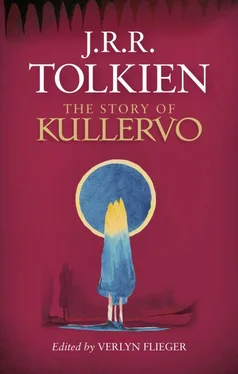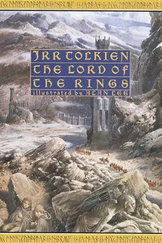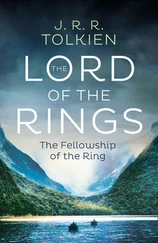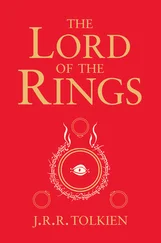But Sāri’s heart was black with bitterness and he said, ‘Thou wilt weep not and if thou dost, then weep: weep till the house is flooded, weep until the paths are swimming and the byre a marsh, for I reck not and shall be far hence.’ And Sāri son of Kampa did Ūlto take abroad with him and through the land of Telea where dwelt Āsemo the smith, nor did Sāri see aught of Oanōra [Wanōna] at his parting and that hurt him: but Mauri followed him afar off and his baying in the nighttime brought some cheer to Sāri and he had still his knife Sikki.
And the smith, for he deemed Sāri a worthless knave and uncouth, gave Ūlto but two outworn kettles and five old rakes and six scythes in payment and with that Ūlto had to return content not.
And now did Sāri drink not only the bitter draught of thralldombut eat the poisoned bread of solitude and loneliness thereto: and he grew more ill favoured and crooked, broad and illknit and knotty and unrestrained and unsoftened, and fared often into the wild wastes with Mauri: and grew to know the fierce wolves and to converse even with Uru the bear: nor did such comrades improve his mind and the temper of his heart, but never did he forget in the deep of his mind his vow of long ago and wrath with Ūlto, but no tender feelings would he let his heart cherish for his folk afar save a[t] whiles for Wanōna.
Now Āsemo had to wife the daughter [of] Koi Queen of the marshlandsof the north, whence he carried magic and many other dark things to Puhōsaand even to Sutsi by the broad rivers and the reed-fenced pools. She was fair but to Āsemo alone sweet. Treacherous and hard and little love did she bestow on the uncouth thrall and little did Sāri bid for her love or kindness.
Now as yet Āsemo set not his new thrall to any labour for he had men enough, and for many months did Sāri wander in wildness till at the egging of his wife the smith bade Sāri become his wife’s servant and do all her bidding. And then was Koi’s daughter glad for she trusted to make use of his strength to lighten her labour about the house and to tease and punish him for his slights and roughness towards her aforetime.
But as may be expected, he proved an ill bondservant and great dislike for Sāri grew up in his [Āsemo’s] wife’s heart and no spite she could wreak against him did she ever forego. And it came to a day many and many a summer since Sāri was sold out of Dear Puhōsa and left the blue woodsand Wanōna, that seeking to rid the house of his hulking presence the wife of Āsemo pondered deep and bethought her to set him as her herdsman and send him afar to tend her wide flocks in the open lands all about.
Then set she herself to baking: and in malice did she prepare the food for the neatherd to take with him. Grimly working to herself she made a loaf and a great cake. Now the cake she made of oats below with a little wheat above it, but between she inserted a mighty flint — saying the while, ‘Break thou the teeth of Sāri O flint: rend thou the tongue of Kampa’s son that speaketh always harshness and knows of no respect to those above him. For she thought how Sāri would stuff the whole into his mouth at a bite, for greedy he was in manner of eating, not unlike the wolves his comrades.
Then she spread the cake with butter and upon the crust laid bacon and calling Sāri bid him go tend the flocks that day nor return until the evening, and the cake she gave him as his allowance, bidding him eat not until the herd was driven into the wood. Then sent she Sāri forth, saying after him:
Let him herd among the bushes
And the milch kine in the meadow:
These with wide horns to the aspens
These with curved horns to the birches
That they thus may fatten on them
And their flesh be sweet and goodly.
Out upon the open meadows
Out among the forest borders
Wandering in the birchen woodland
And the lofty growing aspens.
Lowing now in silver copses
Roaming in the golden firwoods.
And as her great herds and her herdsman got them afar, something belike of foreboding seized her and she prayed to Ilu the God of Heavenwho is good and dwells in Manatomi. And her prayer was in the fashion of a song and very long, whereof some was thus:
Guard my kineO gracious Ilu
From the perils in the pathway
That they come not into danger
Nor may fall on evil fortune.
If my herdsman is an ill one
Make the willow then a neatherd
Let the alder watch the cattle
And the mountain ash protect them
Let the cherry lead them homeward
In the milktime in the even.
If the willow will not herd them
Nor the mountain ash protect them
And the alder will not watch them
Nor the cherry drive them homeward
Send thou then thy better servants,
Send the daughters of Ilwinti
To guard my kine from danger
And protect my horned cattle
For a many are thy maidens
At thy bidding in Manoine
And skilled to herd the white kine
On the blue meads of Ilwinti
Until Ukkocomes to milk them
And gives drink to thirsty Kēme.
Come thou maidens great and ancient
Mighty daughters of the Heaven
Come thou children of Malōlo
At Ilukko’s mighty bidding
O [Uorlen?] most wise one
Do thou guard my flock from evil
Where the willows will not ward them
Out across the quaking marshland
Where the surface ever shifteth
And the greedy depths are gulping.
O thou Sampia most lovely
Blow the honey-horn most gaily.
Where the alder will not tend them
Do thou pasture all my cattle
Making flowers upon the hummocks:
With the melody of the mead-horn
Make thou fair this heathland border
And enchant the skirting forest
That my kine have food and fodder,
And have golden hay in plenty
And the heads of silver grasses.
O Palikki’s little damsel
And Telendathy companion
Where the rowan will not tend them
Dig my cattle wells all silver
Down on both sides of their pasture
With your straying feet of magic
Cause the grey springs to spout coolly
And the streams that flow by swiftly
And the speedy running rivers
Twixt the shining banks of grassland
To give drink of honey sweetness
That the herd may suck the water
And the juice may trickle richly
To their swelling teeming udders
And the milk may flow in runlets
And may foam in streams of whiteness.
But Kaltūsethrifty mistress
And arrester of all evil,
Where the wild things will not guard them
Fend the sprite of ill far from them
That no idle hands do milk them
And their milk on earth be wasted
That no drops flow down to Pūlu
And that Tanto drink not of it
But that when at Kameat milk tide
Then their milkstreams may be swollen
And the pails be overflowing
And the good wife’s heart be gladdened.
O Terenye maid of Samyan
Little daughter of the forests
Clad in soft and beauteous garments
With thy golden hair so lovely
And thy shoon of scarlet leather,
When the cherry will not lead them
Be their neatherd and their shepherd.
When the sun to rest has sunken
And the bird of Eve is singing
As the twilight draweth closer
Speak thou to my horned creatures
Saying come ye hoofed cattle
Come ye homeward trending homeward.
In the house ’tis glad and pleasant
Where the floor is sweet for resting
On the waste ’tis ill to wander
Looming down the empty shorelands
Of the many lakes of Sutse.
Therefore come ye horned creature
And the women fire will kindle
In the field of honeyed grasses
On the ground o’ergrown with berries.
[ The following lines are offset to indicate a change of tone. Kirby’s edition does not so distinguish them, but notes in the Argument at the head of the Runo that it contains ‘the usual prayers and charms’ (Kirby Vol. 2, p. 78). Magoun gives the lines the heading ‘Charms for Getting Cattle Home, Lines 273–314’ (Magoun, p. 232). ]
Читать дальше












